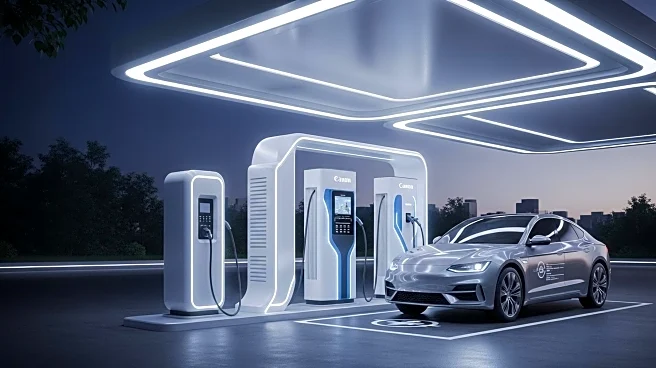What's Happening?
Rivian Automotive experienced a 32% surge in sales during the third quarter of 2025 as U.S. consumers rushed to purchase electric vehicles (EVs) before the expiration of a federal tax credit. This increase in sales is attributed to the $7,500 tax credit, which incentivized buyers to make purchases before its expiration. However, Rivian has adjusted its 2025 delivery outlook downward, anticipating potential challenges in the fourth quarter due to the absence of this federal incentive.
Why It's Important?
The expiration of the EV tax credit is a pivotal moment for the automotive industry, particularly for companies like Rivian that are heavily invested in the EV market. The surge in sales highlights the significant impact of government incentives on consumer behavior and market dynamics. The reduction in Rivian's delivery outlook suggests potential headwinds as the company and the broader industry adjust to a new landscape without federal incentives. This development could affect Rivian's market share and financial performance, as well as influence policy discussions on future EV incentives.
What's Next?
With the federal tax credit no longer available, Rivian and other automakers may need to explore alternative strategies to maintain sales momentum. This could include pricing adjustments, marketing campaigns, or lobbying for new incentives. The company's performance in the fourth quarter will be closely monitored to assess the impact of the credit's expiration and to gauge consumer demand in a changing market environment.









